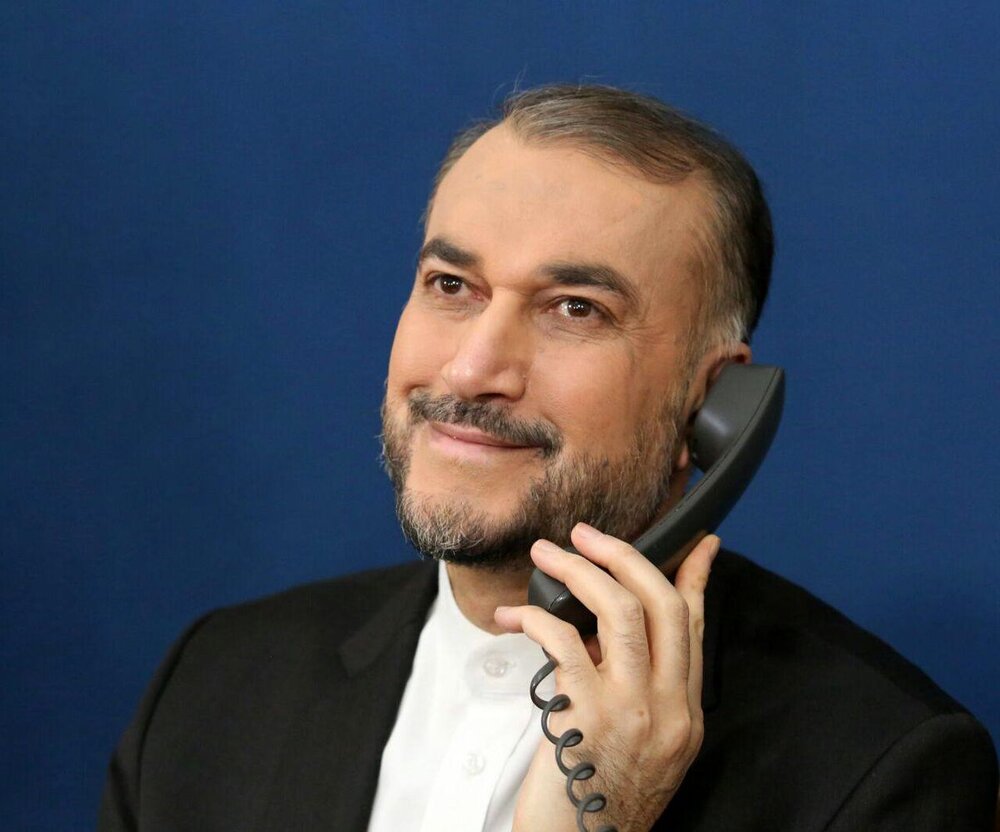Iran urges coordinated effort to find diplomatic solution to Ukraine war

TEHRAN – In separate phone calls with his Hungarian and Serbian counterparts, Iran's Foreign Minister Hossein Amir Abdollahian has insisted on the need to take concerted efforts to find a peaceful solution to the war between Russia and Ukraine, emphasizing Tehran's opposition to wars and sanctions.
During the talks with Hungarian Foreign Minister Peter Szijjarto late on Wednesday, Amir Abdollahian also expressed gratitude to Hungary for helping Iranians studying in Ukraine to return to Iran safely.
On February 24, Russian President Vladimir Putin launched a military campaign against Ukraine to demilitarize what he called "de-Nazification” of the country. As a result, the United States and its European allies have spearheaded unprecedented sanctions against Moscow, making Russia the world's most sanctioned country.
Also, during the talks with his Serbian counterpart Nikola Selakovic on Thursday, Amir Abdollahian reiterated that diplomacy and the promotion of dialogue are the best ways to end the war in Ukraine, stressing the Islamic Republic's opposition to violence in any part of the globe.
In addition to the ongoing war between Russia and Ukraine, the two foreign minister also discussed bilateral relations as well as the other important international developments.
Iran's foreign minister also reaffirmed the Islamic Republic's opposition to war and unilateral sanctions on countries.
The U.S. and its European allies have called the military operation on Ukraine “Putin's land grab,” slapping unprecedented penalties on Moscow. Russia insists that the operation will be halted immediately if Kyiv accepts Russia's list of demands, including a commitment that it will never seek a NATO membership.
For his part, Serbia's foreign minister stated that his country respects Ukraine's territorial integrity and believes in a diplomatic way to achieve peace in the region.
'Iran firm to reach good, strong, and lasting agreement in Vienna’
In continuation of his talk with Foreign Minister Selakovic, Amir Abdollahian talked about the negotiations in Vienna aimed at repairing Iran's landmark 2015 deal with international powers, stating, “Iran is determined to achieve a good, strong and lasting agreement” through the negotiations.
“Instead of putting forth excessive demands and slowing down the talks, the American side must adopt a realistic approach,” Iran’s top diplomat said.
He went on to say that China, Russia, and the three European partners of the Iran deal, officially called the JCPOA, have been cooperative.
According to Amir Abdollahian, the European Union, particularly its foreign policy leader, Josep Borrell, and his deputy, Enrique Mora, who also serves as the Vienna negotiations' organizer, have been seeking to advance the talks.
Selakovic also expressed optimism that the Vienna talks will reach a final conclusion soon.
Iran has recently pinned the blame on Washington's indecision as the cause for the talks' protraction, since a number of major issues remain unresolved, ranging from the lifting of all post-JCPOA sanctions to the American side's offer of guarantees that it would not withdraw the agreement again.
The other participants to the negotiations — Russia, China, France, the United Kingdom, and Germany – have also stated that the negotiators are nearing a conclusion.
Since last April, negotiations in the Austrian capital have been underway to resurrect the JCPOA, which was abandoned by former U.S. President Donald Trump in May 2018.
With his withdrawal from the accord, Trump launched what he dubbed a “maximum pressure” campaign of "toughest ever sanctions" on the Iranian economy in order to bring Iran to its knees.
To counter the sanctions, Tehran has developed a policy of “maximum resistance,” which involves relying on internal capabilities and coordinating with neighbors and partners.
Amir Abdollahian invited to visit Hungary
The Iranian and Hungarian foreign ministers also talked about bilateral ties and the talks.
Amir Abdollahian congratulated the ruling Fidesz party on its win in the Hungarian legislative elections.
He stated that Tehran is eager to increase its ties with Budapest and put into effect the agreements reached during the two countries' joint economic commission meeting in December.
For his part, Szijjarto extended an invitation to Amir Abdollahian to visit Hungary.
He emphasized his country's commitment to strengthen cooperation with Iran, as well as the need to implement the agreements struck between the two nations.
Szijjarto led an economic mission to Tehran last December, when the two sides signed many cooperation agreements.
Szijjarto also expressed optimism that a deal could be reached through a collaborative effort by all parties to revive the JCPOA.
Iran's positive attitude with the goal of achieving a final agreement is quite valuable, Szijjarto noted.
